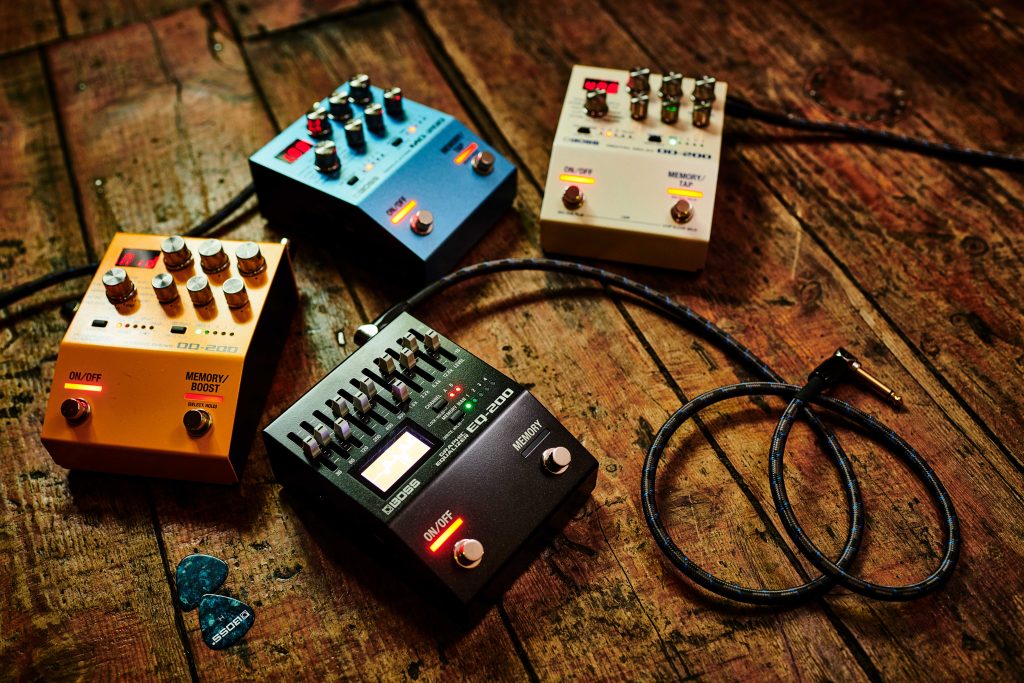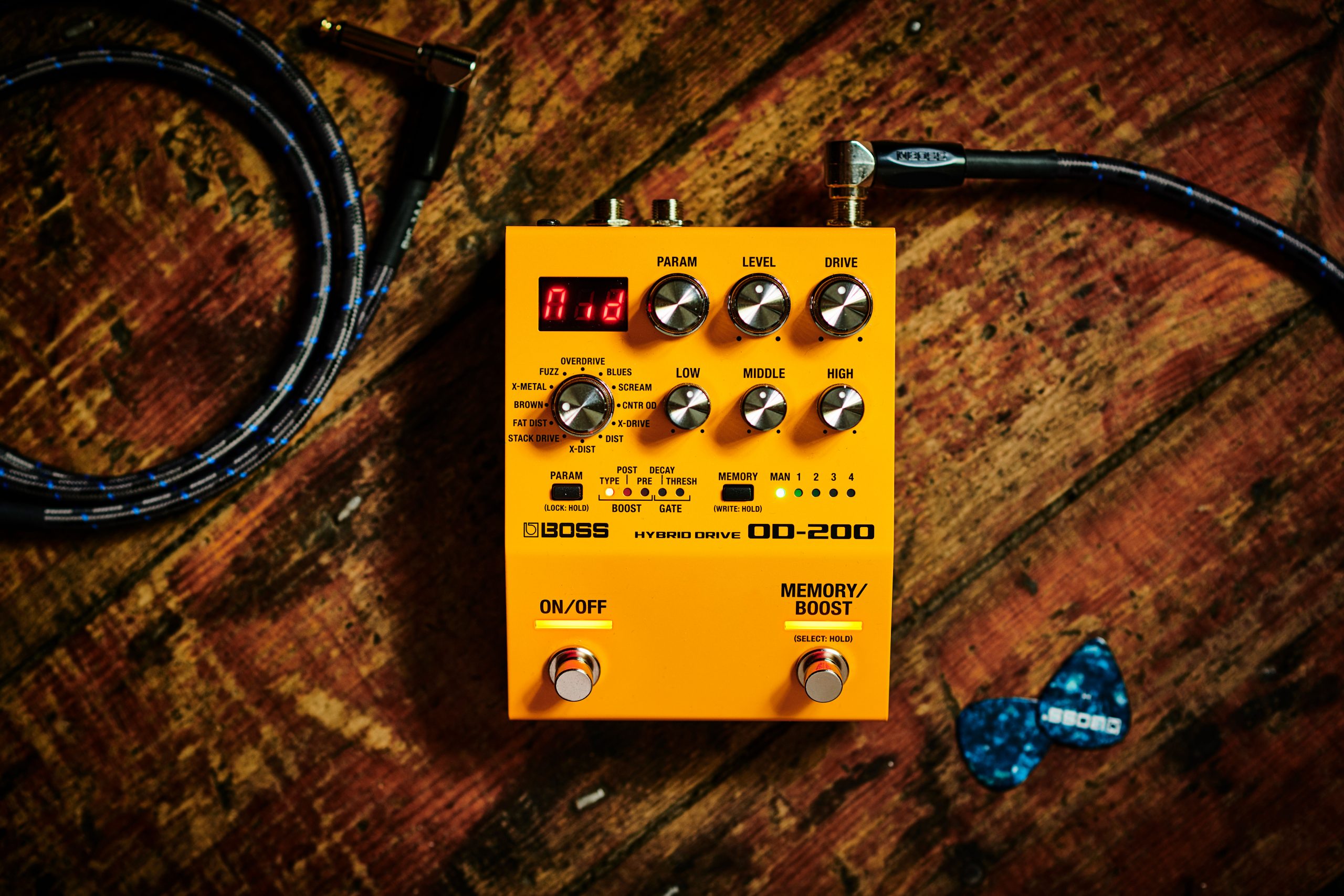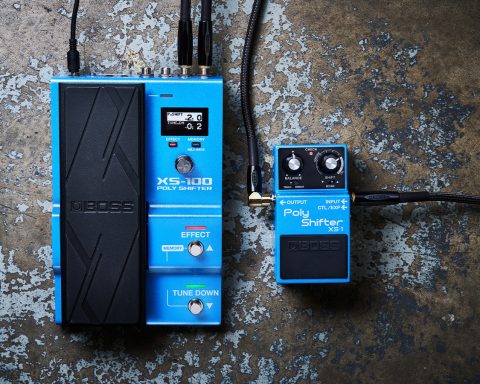The OD-200 Hybrid Drive brings together decades of experience and innovation in overdrive and distortion to create a totally powerful breed of pedal. The pedal’s cutting-edge analog + digital technology means that you get the prized organic feel of analog circuitry with the precision tone shaping of DSP. That’s not to mention 128 presets and full MIDI control.
With 12 primary modes, 15 boost types, series/parallel gain structures, and an advanced gate for progressive playing, the OD-200 presents bold tones with no compromise. Let’s dive into four key techniques to utilize the OD-200 to help you achieve overdrive nirvana.
1: Slam the Front End
It’s common knowledge that the tried and tested way to sculpt the tone of a cooking high-gain amp is a Tubescreamer-style pedal. Set the Level high and the Drive low. These pedals have a strong midrange “hump,” while pulling back slightly in the bass and treble frequencies. The result is tighter palm mutes, better note articulation, and enough midrange to punch through the mix.
Magic Mode
The OD-200 allows you to do exactly that with the SCREAM mode, based on the classic TS-808. Place this in front of a Recto-style amp (which has a looser low end) or an already crunched-out Marshall. Watch the magic happen.
However, there are many more flavors of front-end boost to be had from the OD-200. Every amp is different, and a little out-of-the-box experimentation might be what you need to achieve that elusive tone in your head. Many of the original pedals only have limited tone controls. The OD-200 has a full 3-band EQ to allow you to get even more precise with shaping and fine-tuning your tone.
Sample Settings
Try the CNTR OD (Klon Centaur-style) for a little more high-mids focus, or BLUES (BD-2 Blues Driver) for a more stinging high-end attack. If you want classic DS-1 grit ala Steve Vai or Kurt Cobain, you have that option too with the DIST drive. Or bring back the sounds of the early Sunset Strip with the OD-1 based OVERDRIVE setting. The cool thing about having these options within the OD-200 is that they’re recallable via preset. You can have a more aggressive gritty rhythm crunch and switch over to a smooth mid-hump boost for your lead sound. It’s all at your command via footswitch or MIDI.
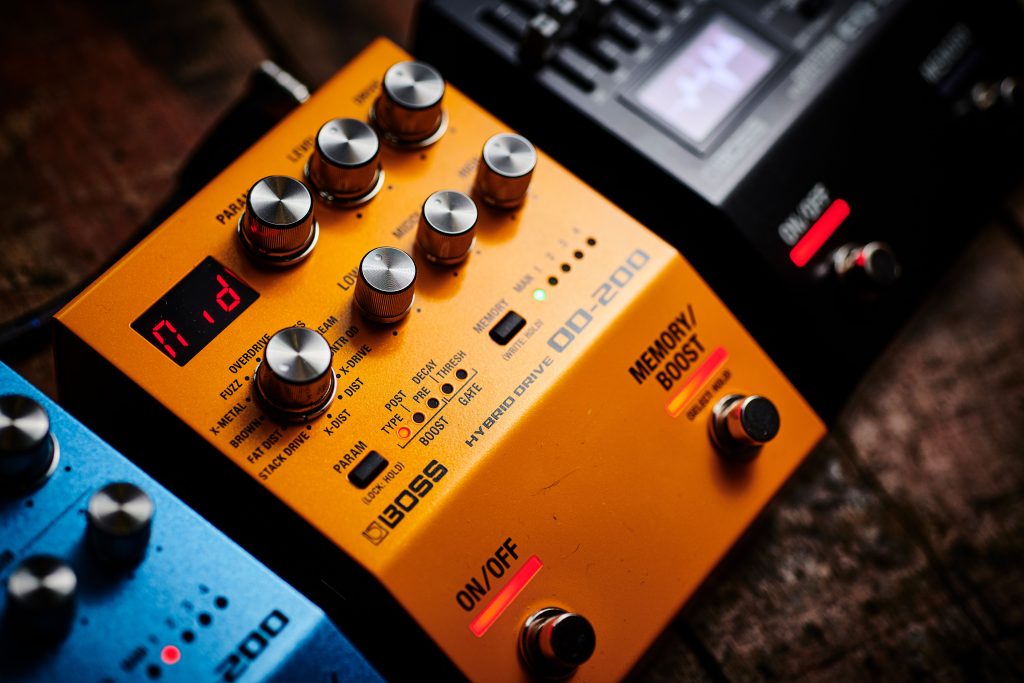
2: Stack the Drives
On the other hand, if you run a cleaner amp and you get your high gain tone from pedals, then “stacking” is one of the best ways to find your unique signature sound. Stacking simply means combining two or more drive, distortion, boost or fuzz sounds at the same time. The advantage of this approach over a single drive tone is more ability to tailor the nuances of gain structure, EQ, and combined feel/response. Basically, you’re building your very own custom sound from scratch.
The OD-200 is perfectly suited for this with its boost + drive configuration. The main drive setting is what sets the base for your tone. You might want to start by choosing one of the more “amp-like” drives like STACK DRIVE, X-METAL, BROWN, or X-DRIVE. With this philosophy, you can set the base sound as you would a normal amp, and then layer the boost on top of it to get the perfect stack.
Time to Experiment
Or, throw the rules to the wind and just experiment with different combinations to see what works. Run the METAL ZONE boost into X-METAL and crank everything, go on.
Don’t be afraid to use the EQ controls. They’re designed to be wide ranging and powerful so that they can work in well with any type of clean channel. Perhaps you have a sparkly, scooped American clean channel. You may find that you’ll need to bump the mids up a fair bit and wind the treble back slightly to get that beefy drive tone you’re looking for. Use your ears and don’t be afraid to try extreme settings if your sound calls for it.
Possible stack combinations to try:
- X-METAL – modern high gain sound with a more scooped sound profile. Add the MID boost in to bring out that huge wall of sound.
- BROWN – classic hot-rodded British tone, quite mid-focused. Use TREBLE booster to make it scream and bring out definition and snap to the sound.
- STACK DRIVE – slight mid-cut similar to classic Plexi sound with much more gain. Use CNTR OD boost for a distinctive upper mid accentuation that’s distinct from the normal British mids.
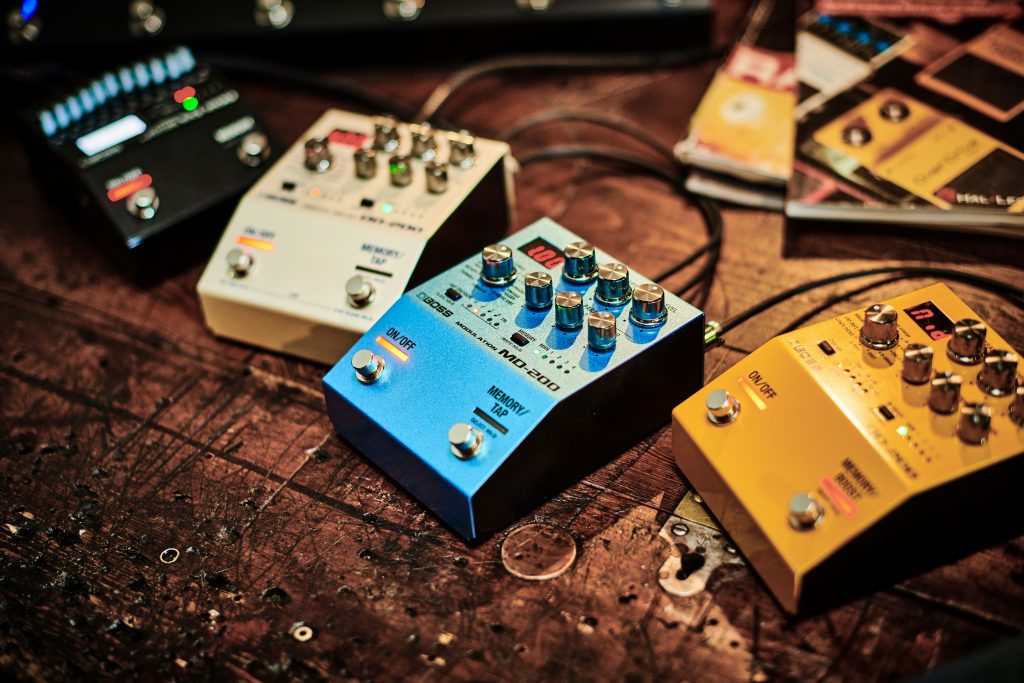
3. Running Parallel
Before when we talked about stacking drives, that meant running one into the other, which we can also refer to as being “in series.” Instead of series, you can also run them in parallel. This means that you run them “next to each other.” You can blend appropriate amounts of each to create the final drive tone.
This allows you to combine distinctly different sounds to get the best of both worlds. For example, a huge gnarly fuzz can sound great, but it will also lose definition the more you turn the gain up. To counteract this, you can blend in a treble boost or Blues Driver in parallel to restore that snap and treble definition.
Splits and Blends
Running in parallel is not usually done with single pedals, as you’d need to have line splits and blends. This can quickly get tricky. One of the few rare exceptions to this rule is the JB-2 Angry Driver. It’s specifically built with this exact kind of operation in mind. Or you could use the ES-5 or ES-8 switchers to run different loops in parallel.
However, with the OD-200, you can do all this within the pedal itself. In the PARALLEL configuration, the EQ controls act as a master EQ across your blended sound. Use the BOOST PRE parameter to adjust the gain of the booster. Then and use the BOOST POST parameter to adjust the volume of the booster. This is the amount you blend into the main distortion.
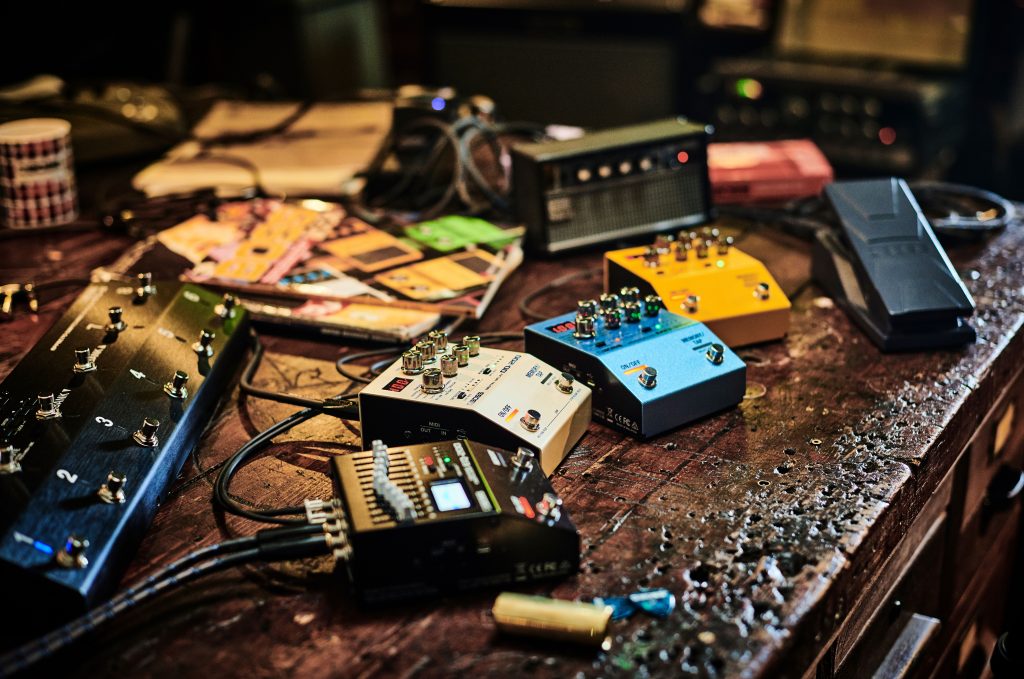
4. Use it as a Preamp
Last but not least, it’s worth mentioning a growing movement among metal guitarists. This is to use overdrive/distortion pedals straight into the effects return of amps. The technique effectively bypasses the tone stack and preamp of the amp and gives full tonal control to the pedal. The OD-200 has very powerful and wide-ranging control over EQ and gain structure, making it particularly suited to this task. Will It chug? The short answer is yes.
Just keep this in mind. If you bypass the tone stack of your amp, the pedal may need some drastic and unconventional-looking EQ settings to achieve the desired sound. This is normal, and don’t be afraid to experiment.
Final Thoughts
Are you a rock/metal guitarist looking to push the boundaries and create your own signature tone? The OD-200 could be the piece of the puzzle that you’re looking for.
